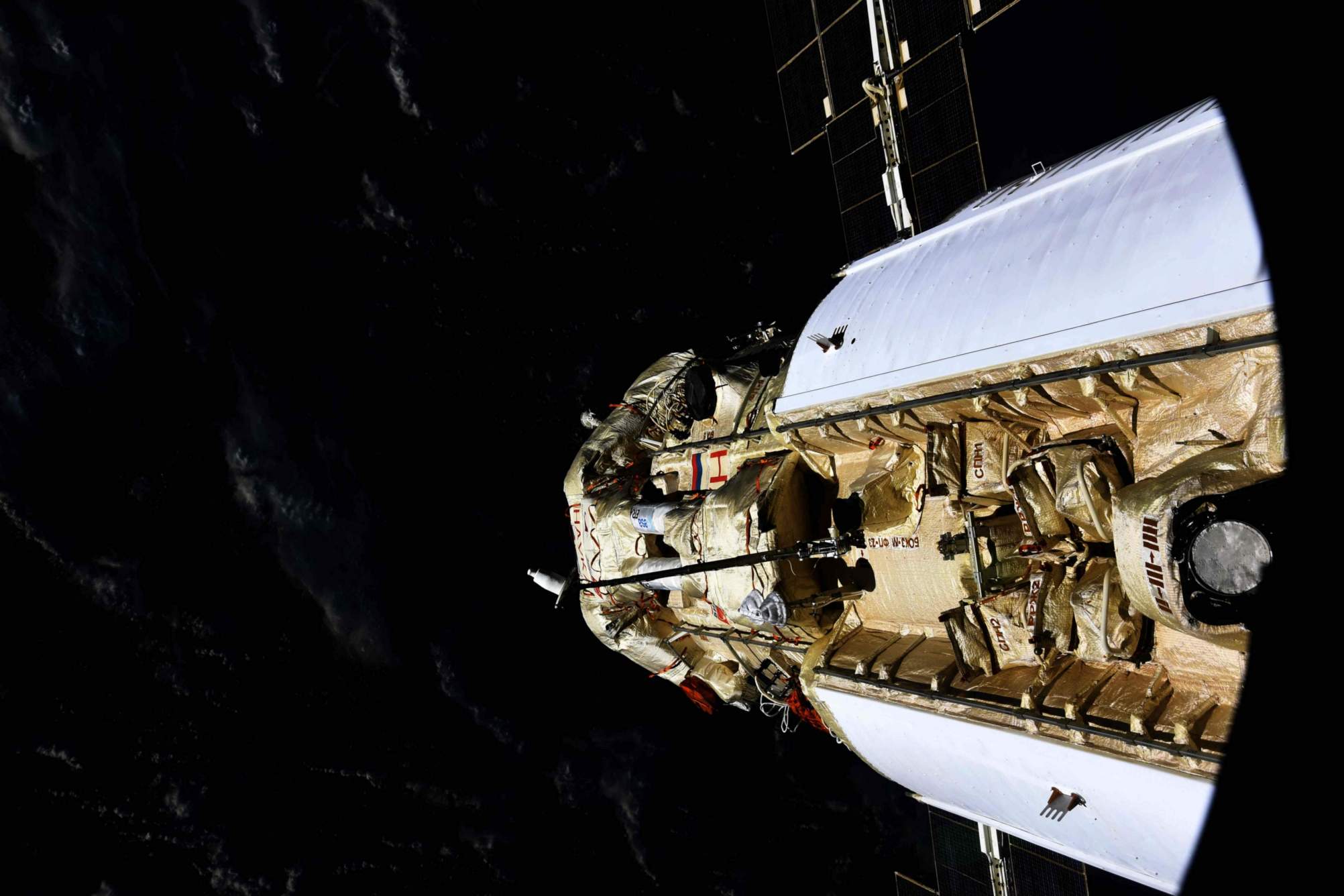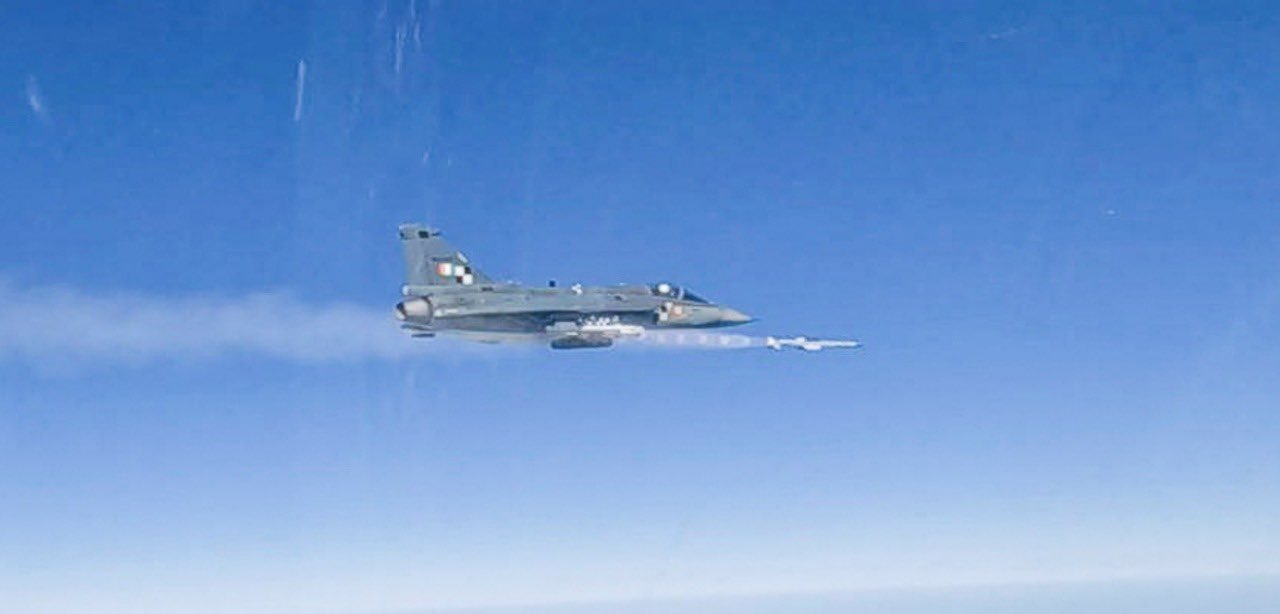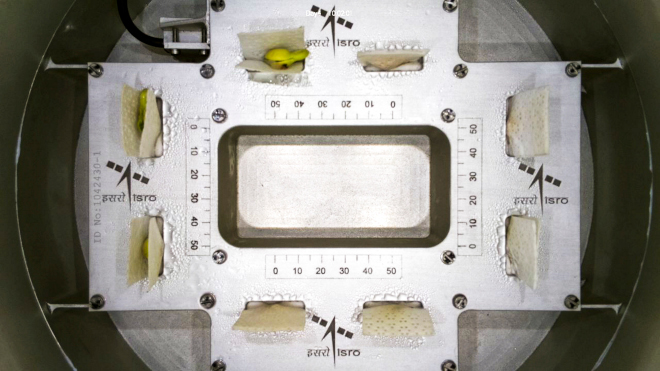
In accordance with the flight programme of the International Space Station, the 'Nauka' multi-purpose laboratory module docked to the nadir docking port of the Zvezda Service Module of the ISS Russian segment. Photo: Roscosmos
MOSCOW (AP): Russia's long-delayed lab module successfully docked with the International Space Station (ISS) on Thursday, eight days after it was launched from the Russian space launch facility in Baikonur, Kazakhstan.
The 20-metric-ton (22-ton) Nauka module, also called the Multi-purpose Laboratory Module, docked with the orbiting outpost in an automatic mode after a long journey and a series of manouvers. Russia's space agency, Roscosmos, confirmed the module's contact with the International Space Station at 13:29 GMT.
The launch of Nauka, which is intended to provide more room for scientific experiments and space for the crew, had been repeatedly delayed because of technical problems. It was initially scheduled to go up in 2007.
In 2013, experts found contamination in its fuel system, resulting in a long and costly replacement. Other Nauka systems also underwent modernization or repairs.
Nauka became the first new module in the Russian segment of the station since 2010. On Monday, one of the older Russian modules, the Pirs spacewalking compartment, undocked from the Space Station to free up room for the new module.
Russian crewmembers on the station have done two spacewalks to connect cables in preparation for Nauka's arrival. After docking, Nauka will require many manouvers, including up to 11 spacewalks beginning in early September, to prepare it for operation.
The International Space Station is currently operated by NASA astronauts Mark Vande Hei, Shane Kimbrough and Megan McArthur; Oleg Novitsky and Pyotr Dubrov of Russia's Roscosmos space corporation; Japan Aerospace Exploration Agency (JAXA) astronaut Akihiko Hoshide and European Space Agency (ESA) astronaut Thomas Pesquet.
In 1998, Russia launched the station's first module, Zarya, which was followed in 2000 by another big module, Zvezda, and three smaller modules in the following years. The last of them, Rassvet, arrived at the station in 2010.
 Previous Article
Previous Article











The Indian Air Force, in its flight trials evaluation report submitted before the Defence Ministry l..
view articleAn insight into the Medium Multi-Role Combat Aircraft competition...
view articleSky enthusiasts can now spot the International Space Station (ISS) commanded by Indian-American astr..
view article